Bali Coffee Plantation
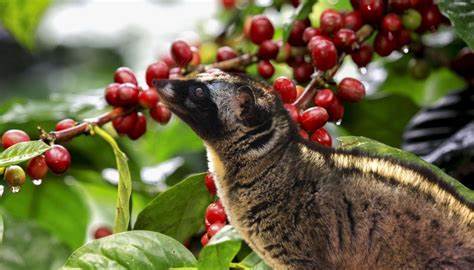
Exploring the World of Agrotourism and the Unique Coffee Luwak
Bali Coffee Plantation. Bali is not only known for its stunning beaches, rice terraces, and vibrant culture, but also for its burgeoning agrotourism industry, with coffee plantations being a significant part of it. Among the many types of coffee grown in Bali, Coffee Luwak (also known as civet coffee) has gained international fame for its unique production process and distinctive flavor. Visitors to Bali have the opportunity to experience coffee plantations firsthand, learn about the coffee-making process, and even try the famous Coffee Luwak.
In this article, we will explore Bali’s coffee plantations and agrotourism, dive into the history and process behind Coffee Luwak, discuss its taste and business aspects, and share what it’s like to try this unusual and exclusive brew.
Bali Agrotourism Coffee Plantations as a Tourist Attraction

Agrotourism in Bali has become a popular activity for both locals and tourists, offering a glimpse into the island’s agricultural practices, with coffee plantations being one of the main attractions. The fertile volcanic soil and tropical climate of Bali provide ideal conditions for growing coffee, particularly in the highland areas of Kintamani, Ubud, and Bedugul.
Coffee has been grown in Bali for centuries, with the island producing several varieties, including Arabica and Robusta. However, it is the Luwak Coffee, or Kopi Luwak, that has attracted significant attention. Visitors to coffee plantations can tour the lush fields where coffee trees are grown, see the coffee cherries being harvested, and learn about the traditional methods of coffee processing.
In addition to exploring the coffee-making process, many plantations also grow other crops such as cacao, vanilla, spices, and fruits, making these agrotourism destinations a great way to experience Bali’s agricultural diversity. Many plantations offer guided tours, allowing visitors to witness the entire journey from bean to cup, culminating in a coffee-tasting session where they can sample a variety of Balinese coffees, including the infamous Coffee Luwak.
History of Coffee Luwak
Coffee Luwak is known for its unique and unusual production method, which involves the Asian palm civet (locally known as luwak) playing a critical role in the process. The history of Coffee Luwak dates back to the Dutch colonial era in Indonesia, during the early 19th century. At that time, Indonesia was a major producer of coffee, particularly on the islands of Java and Sumatra, where large coffee plantations were established by the Dutch East India Company.
During this period, native farmers and plantation workers were not allowed to harvest or consume the coffee beans they cultivated for export. However, they discovered that the Asian palm civet would eat the ripe coffee cherries, and after the cherries passed through the animal’s digestive system, the beans would remain intact in its feces. The workers collected these beans, cleaned them thoroughly, roasted them, and brewed them into coffee. To their surprise, the resulting coffee had a unique and richer flavor compared to traditionally processed coffee beans.
This discovery led to the creation of Kopi Luwak, or civet coffee, which became highly sought after for its smooth, less bitter taste. Over time, Coffee Luwak gained a reputation as one of the most expensive and rarest coffees in the world, attracting coffee connoisseurs and curious travelers alike.
The Process of Making Coffee Luwak
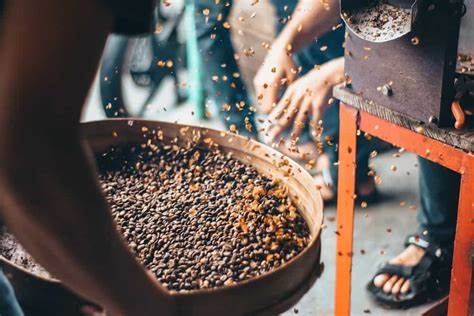
The production of Coffee Luwak is an intricate and time-consuming process that sets it apart from regular coffee. It all starts with the Asian palm civet, a small, nocturnal mammal native to Southeast Asia, including Bali. The civet has a keen sense of smell and is known for its ability to select only the ripest and highest-quality coffee cherries to eat. This natural selection process is part of what makes Coffee Luwak so unique.
1. The Civet’s Role
The civet consumes the ripe coffee cherries, but instead of fully digesting them, the cherries pass through the animal’s digestive tract. During this process, the cherries undergo a fermentation in the civet’s stomach, where enzymes break down the proteins in the beans, resulting in a smoother, less acidic coffee.
2. Collection of Coffee Beans
After the civet excretes the beans, they are collected from the feces, washed thoroughly, and then dried. The fermentation that occurs inside the civet’s digestive system is what gives Coffee Luwak its distinctive flavor, with a smoother, more refined taste compared to regular coffee.
3. Roasting and Grinding
Once the beans are cleaned and dried, they are roasted just like any other coffee beans. The roasting process further develops the flavor and aroma of the coffee. After roasting, the beans are ground to the desired coarseness, ready for brewing.
The entire process, from the civet’s selection of the cherries to the roasting of the beans, is what makes Coffee Luwak so unique and exclusive. The rarity of the production method, along with the labor-intensive process of collecting, cleaning, and roasting the beans, contributes to the high price of this coffee.
Taste of Coffee Luwak
Coffee Luwak is renowned for its distinctive taste, which is often described as smooth, earthy, and less bitter than regular coffee. The fermentation process inside the civet’s digestive system breaks down the proteins in the coffee beans, reducing the bitterness and acidity that is commonly found in traditional coffee.
When brewed, Coffee Luwak has a rich, full-bodied flavor with subtle hints of caramel and chocolate, and a long, smooth finish. The texture is often described as silky, and the flavor profile is complex, with a delicate balance of sweetness and earthiness. Many coffee enthusiasts praise Coffee Luwak for its lack of bitterness and its unique depth of flavor, making it an indulgent treat for coffee lovers.
However, as with any specialty coffee, taste is subjective, and not everyone may appreciate the flavor profile of Coffee Luwak. Some may find it too mild or earthy compared to other strong and bold coffees. Nonetheless, for those who enjoy a more refined and less acidic cup of coffee, Coffee Luwak offers a luxurious experience.
The Coffee Luwak Business
Due to its rarity and labor-intensive production process, Coffee Luwak has become one of the most expensive coffees in the world, often commanding prices of $100 to $600 per pound in international markets. The exclusivity of Coffee Luwak, combined with the intrigue of its unique production process, has made it a sought-after luxury item in the global coffee industry.
In Bali and other parts of Indonesia, many coffee plantations have capitalized on the growing demand for Coffee Luwak by incorporating it into their agrotourism businesses. Visitors to Bali’s coffee plantations are given the opportunity to learn about the production process, observe the civets in captivity, and taste the coffee for themselves.
While the Coffee Luwak industry has been profitable, it has also faced criticism from animal welfare organizations. Some coffee plantations have been accused of keeping civets in inhumane conditions, with the animals kept in cages and force-fed coffee cherries to maximize production. This practice has led to concerns about the ethical implications of producing Coffee Luwak on a large scale.
In response to these concerns, some coffee plantations have shifted to producing wild-sourced Coffee Luwak, where the beans are collected from civets living in the wild, rather than those kept in captivity. This approach is more sustainable and ethical, as it allows the civets to forage for coffee cherries naturally. However, wild-sourced Coffee Luwak is even rarer and more expensive due to the difficulty of collecting the beans.
Trying Coffee Luwak: A Unique Experience
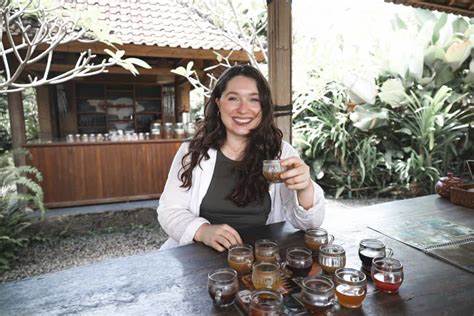
For those curious about trying Coffee Luwak, Bali offers numerous opportunities to sample this famous brew. Many of the island’s coffee plantations, particularly in the Kintamani and Ubud regions, offer guided tours where visitors can learn about the history and production process of Coffee Luwak and enjoy a tasting session at the end.
Visitors can often sample multiple types of coffee, including Arabica, Robusta, and other Balinese specialties, before trying Coffee Luwak. While the price of Coffee Luwak is higher than regular coffee, most coffee plantations offer it by the cup at a relatively affordable price for visitors. It’s a unique experience for coffee enthusiasts and travelers who want to taste one of the world’s most exclusive coffees in the region where it originated.
Beyond the coffee itself, the visit to a coffee plantation is a memorable experience. The lush, green surroundings, the cool mountain air, and the opportunity to see the civets and coffee trees up close make it a fascinating journey into the world of Balinese agriculture. It’s also a great way to support local farmers and learn about Bali’s role in the global coffee industry.
Exploring Bali’s Coffee Culture and the Unique Coffee Luwak
A visit to Bali’s coffee plantations offers a blend of culture, history, and sensory indulgence. From exploring the lush fields of coffee trees to learning about the fascinating and unique process behind Coffee Luwak, Bali’s agrotourism scene provides a rich and educational experience for travelers.
Coffee Luwak, with its distinct flavor and high price tag, may not be for everyone, but it remains a fascinating part of Bali’s coffee culture. For those willing to try it, a visit to one of Bali’s coffee plantations offers the chance to


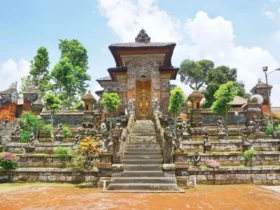

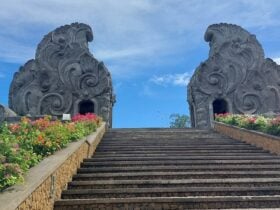
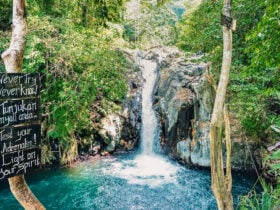


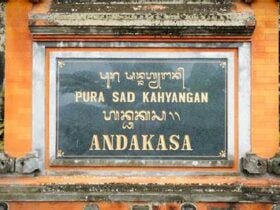

Leave a Review